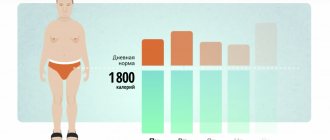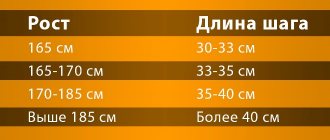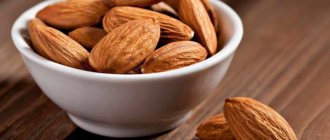ROLE AND IMPORTANCE OF PROTEINS
There are many reasons why you should add protein to your diet. Of the 20 amino acids that make up proteins, nine are essential. The fact that they are “essential” means that our body cannot synthesize them on its own, and the only way to get them is from food. Proteins derived from foods are the building blocks of muscle tissue and also provide essential substances for neurotransmitters and hormones.
Every time you exercise, your muscle tissue breaks down. In fact, the body builds muscle tissue outside the gym , and this requires enough energy. With sufficient protein intake, the body receives amino acids that promote the growth and repair of muscle tissue, which grows and becomes stronger.
How to calculate the amount of protein for muscle growth?
If you gain weight, increase your protein using the same formula as always: 1.6 grams of protein per kilogram of your total weight, well, a maximum of 1.8-2 grams if you do not experience kidney problems and biochemistry tests are in order! Understand that extra protein will not add additional muscle to you, but it will definitely add problems. Especially do not do this when you are on a course of steroids, since anabolic steroids already retain an additional 15% of protein and it will not be retained any more, no matter how hard you try!
There is a formula for correctly calculating the protein requirement for muscle growth. To calculate a specific amount, body weight is multiplied by 1.55. This coefficient is used for 3 intense workouts per week. If there are more classes, the coefficient will also be higher. Next, we need to calculate exactly how much muscle we want to build. For 1 kg of muscle you need an additional 200 grams of protein per month, which is about 7 additional grams daily. That is, it turns out that a person weighing 80 kg needs to eat about 130 grams of protein.
One of the reasons why we can increase the total amount of protein per day to 1.8-2 grams per kg of our weight is when preparing without anabolic steroids, when an additional 15% of protein is no longer retained in our tissues due to the anabolic effect of the drugs .
You may be interested in these products:
Proteins stabilize energy levels and appetite
If you're constantly hungry throughout the day, your body probably isn't getting enough protein at each meal. Compared to carbohydrates, proteins take longer to break down and digest.
Slow digestion times mean that proteins ensure that you are full and not hungry , making it easier to consume calories to maintain a healthy weight.
Proteins help you burn calories more efficiently
Proteins have the highest thermal effect of food (TEF), which is the number of calories our bodies use to digest and use nutrients. In fact, our body uses about 20-35% of the energy from the protein we consume for digestion and absorption. Of every 100 calories obtained from protein, 25-30 are burned during digestion.
Because our bodies spend more energy digesting protein than absorbing carbohydrates and fats , people who eat more protein throughout the day experience faster fat loss than those whose diets are low in protein.
Protein prevents muscle loss
If you reduce your calorie intake while carbs and fats are rarely present in your strict diet , then your body is more likely to use protein for energy. Thus leaving less protein for various body functions.
If amino acids are not available in sufficient quantities, the body will begin to break down muscle fibers to obtain individual amino acids. This is reflected in muscle loss and slower metabolism. However, this process can be prevented by regularly consuming protein.
Proteins strengthen the immune system
If you add whey protein to your diet, you'll get more than just increased muscle strength. It will also help strengthen the immune system. Whey protein contains glutathione, a tripeptide that helps boost immunity. [3]
Accurate calculation of daily protein intake
Let's consider how much protein the body needs to function:
- Women . Protein in the female body is responsible for beauty, freshness of the skin, reproductive function, slim figure, and normal hormonal levels. At the same time, we must not forget the main feature of the female body - the ability to transform excess protein and remove it from the body. The average daily portion is from 80 grams. This figure is easy to explain. If a woman does not play sports, then the body needs 1.6-1.8 grams of protein per kilogram of actual weight (not ideal). So, if her weight is 60 kg, then the norm per day is 96-108 grams.
- Pregnant women . The pregnancy process is associated with the body’s urgent need for “building materials”, which is necessary for the mother and her unborn child. A pregnant woman's internal organs increase in size, which must cope with the “whims” of the baby in the womb. This means that the norm increases to 2 grams per kilo of weight, and daily consumption to 100 grams or more. It is worth considering here that the incoming protein must be easily digestible.
- Athletes . As for athletes and people who engage in active physical activity, their norm has always caused a lot of controversy. Scientists believed that athletes do not need additional dosage - the standard daily portion is enough for them. But recent research has shown the “old” assumptions to be wrong. In the case of regular training, the body needs a volume of 2 grams per kilo of live weight. This amount of protein is not harmful, because it goes not only to cover the current needs of the body, but also to build muscles. Even a small deficiency leads to disruption of the recovery process, loss of muscle mass, catabolic processes and a drop in endurance.
A person who goes to the gym should eat 3 to 8 servings of chicken (fish) per day or supplement the intake with sports nutrition. However, we must not forget that complete replacement of natural protein is not recommended. The main emphasis is on regular food, the rest is sports supplements. The distribution occurs approximately in the following percentage ratio - 70 to 30 or 60 to 40 .
MYTHS ABOUT PROTEIN
One of the reasons why many women avoid protein intake is because they believe in myths. Don't believe false information about protein.
Eating Protein Leads to Too Big Muscles
Protein promotes strength gains. This is associated with muscle growth, but not with a masculine figure. Eating chicken breast instead of chocolate or lifting weights will not make you look like a man.
The female body contains only the fraction of testosterone necessary to build muscle mass. Even if you add protein to your diet, you will not gain muscle mass like men . Our body can only produce a certain amount of muscle mass per day. Excess protein does not necessarily cause muscle growth. However, excess protein is broken down into amino acids so it can be used as energy, so don't worry about this myth.
A high protein diet makes it harder for your kidneys to function
If you have kidney problems, you should be careful when adding protein to your diet. But if you are actively involved in sports and you are completely healthy, then it is safe to increase your protein intake. However, note that increased protein intake can lead to dehydration, so increase your fluid intake as well.
High Protein Diets Harm Bone Health
There is no clear evidence that a diet high in protein and excess acid is associated with bone loss and poor health.
In fact, a study from the American Journal of Clinical Nutrition found that a high-protein diet has small but significant benefits for the lumbar spine . [4]
What happens if you eat too much protein?
In fact, nothing tragic. Excessive protein consumption overloads the kidneys, bones and liver, but does not lead to serious problems. Some studies indicate that a high-protein diet increases cholesterol levels and the risk of cancer.
In addition, overeating protein leads to inflammation of the skin. This is due to the hormones that are present in animal protein - it’s not for nothing that dermatologists unanimously note the harm of dairy products.
HOW MUCH PROTEIN DO WOMEN NEED?
So how much protein should women consume? Numbers vary depending on the source. According to the Centers for Disease Prevention and Control, the standard recommended intake for the average person is approximately 46 grams of protein per day for women and 65 grams per day for men. [5]
Keep in mind that this is the recommended dose for a person who spends most of their time sitting. If you exercise and strain your muscles, you should increase your protein intake. Likewise, if you are dieting and getting fewer calories from carbohydrates and fats, you need to increase the amount of macros you consume from proteins.
People who only exercise and are not dieting should consume about 0.8 to 1 gram of protein per 0.45 to 0.5 kilogram per day. If you eat right and exercise, you need to consume 1 - 1.5 grams of protein per 0.45 - 0.5 kilograms per day. If you are reducing your calorie intake, be sure to increase your protein intake. Keep this in mind when building your diet.
Focus on consuming high-quality protein sources such as chicken, fish, lean red meat, eggs, low-fat dairy products and high-quality whey protein.
Conclusions: Table No. 4. How much protein does a person need per day?
It is easy to see that protein intake data varies greatly. This is a normal situation, you should not look for one single figure, and the person who believes that one figure can take into account all the variety of variables is probably mistaken. There are many variables: age, weight, activity, height, gender. They all affect protein intake to varying degrees. There cannot be one single correct number. If you try to combine all of the above into a single table, you can divide the required amount of protein in the diet depending on activity. The type of activity directly affects the amount of protein required in the diet [4]. The more energy you spend, the more energy you need to replenish and it is important how to replenish this energy. It's important to remember that all three macronutrients are important for long-term energy replenishment: protein, fat, and carbohydrates.
A large scatter of data and a few studies force us to draw conclusions about the significance of the influence of individual and seasonal dietary habits when determining a fixed value for the amount of protein in the diet. The digestion mechanism itself is highly dependent on adaptation (eating habits) and many other variables.
We recommend that, based experimentally on the above figures, each athlete independently determines for himself the optimal amount of protein in the diet. Take some level as a percentage of energy consumption, for example, 18-20%, hold it, and observe the sensations. Increase it and decrease it, and then draw your own conclusions.
The exact amount of protein as the most important element in the diet is necessary for proper energy balance. An athlete's diet directly affects his results. With all of the above in mind, we hope that, armed with the right information, you will achieve better results in your sport or fitness.
The effect of protein on the body of training women
There is also an interesting study from the Performance Enhancement Lab at the University of South Florida, where they looked at the effects of varying amounts of protein in the diet on the body and endurance of exercising women. [6]
The study involved two groups of women who followed a strength training plan and a resistance training program for 8 weeks . The program consisted of two parts: two training days for the upper body, and two days for the lower body. Half of the women ate a high-protein diet and the other half ate a low-protein diet.
The high protein group consumed 1.1 grams of protein per pound of body weight, including 25 grams of whey protein before and after each workout. The second protein group consumed 0.55 grams of protein per pound of body weight, including 5 grams of whey protein immediately before and after exercise. Each day, participants consumed a certain amount of protein, but were allowed to eat as many carbohydrates and fats as they wanted.
V závere štúdie sa ukázalo, že ženy, ktoré konzumovali väčšie množstvo bielkovín získali podstatne viac svalovej hmoty (cca 2.8 kg) v porovnaní so skupinou, ktorá konzumovala menšie množstvo bielkoví n (0.68 kg). Skupina, ktorá konzumovala viac proteínu, stratila viac telesného tuku ako skupina s nižšou dávkou bielkovín , hoci táto zmena nedosiahla žiadnu štatistickú významnosť.
What is the effect of proteins according to the study?
While these results aren't shocking, they do confirm what we already know: if women, especially those who exercise intensely, consume more protein, they are likely to gain more muscle mass than women who consume less protein.
However, the following fact may surprise you. On average, women with high protein intake consumed an additional 423 calories each day from protein . Therefore, it can be assumed that someone who consumes an additional 400-500 calories per day for eight weeks will easily increase their fat levels; however, this did not occur in this study.
Women in the higher protein intake group lost a greater percentage of body fat than women in the lower protein intake group , even though they were consuming more calories! Specifically, the higher protein group lost 1.08 kg of fat compared to the second group, which lost just 0.77 kg.
This was the first study to include only women who exercise. However, similar results can also be observed in other studies involving men or men and women together . Research from Nova Southeastern University has shown that consuming 500 to 750 calories daily from protein sources, especially protein, does not increase body fat levels. [7],[8] In contrast to the current study, participants who consumed more protein did not see as significant changes as in this study.
Due to these results, this may mean that women actually respond better to higher protein intake to increase muscle mass than men. However, this is just a theory that needs to be confirmed by further research.
Stop looking at the scales
You've probably already heard the phrase, "Don't worry about what your scale says," and now you have a good reason to pay attention. If previous studies had controlled for body weight, women in the higher protein intake group would have realized that they had gained just over 0.9 kg. And for women this is a rather frightening fact.
However, the study was conducted by experts and scientists who assessed the condition of the body, not just body weight. They found that the higher protein group gained more muscle and lost more fat than the lower protein group—so you won't see all the results on the scale.
Let's look at the changes - fat loss and muscle growth . If you find that your weight has increased, but your fat percentage has decreased, know that what you did was right and good! It can also be helpful to take pictures of your progress, pay attention to how you feel in certain clothes, or monitor your energy levels in the gym.
Foods are good sources of protein
- Eggs and egg whites
- Chicken
- Turkey
- Lean beef
- Fish (tuna, tilapia, salmon, mahi-mahi, halibut)
- Protein powder
- Tofu
There's no reason why you can't meet your daily protein needs! With a quality, low-carb, low-fat powder, it's easy to whip up a quick shake while satisfying your sweet tooth at the same time. Dietary protein is very important in a woman's diet. Women need the same amount of protein as men (depending on body weight). It is recommended that active women consume about 1 gram of protein per pound of body weight.
If you want to improve in the gym and achieve your dream body goals, eat protein and don't let anyone tell you that women don't need protein!











